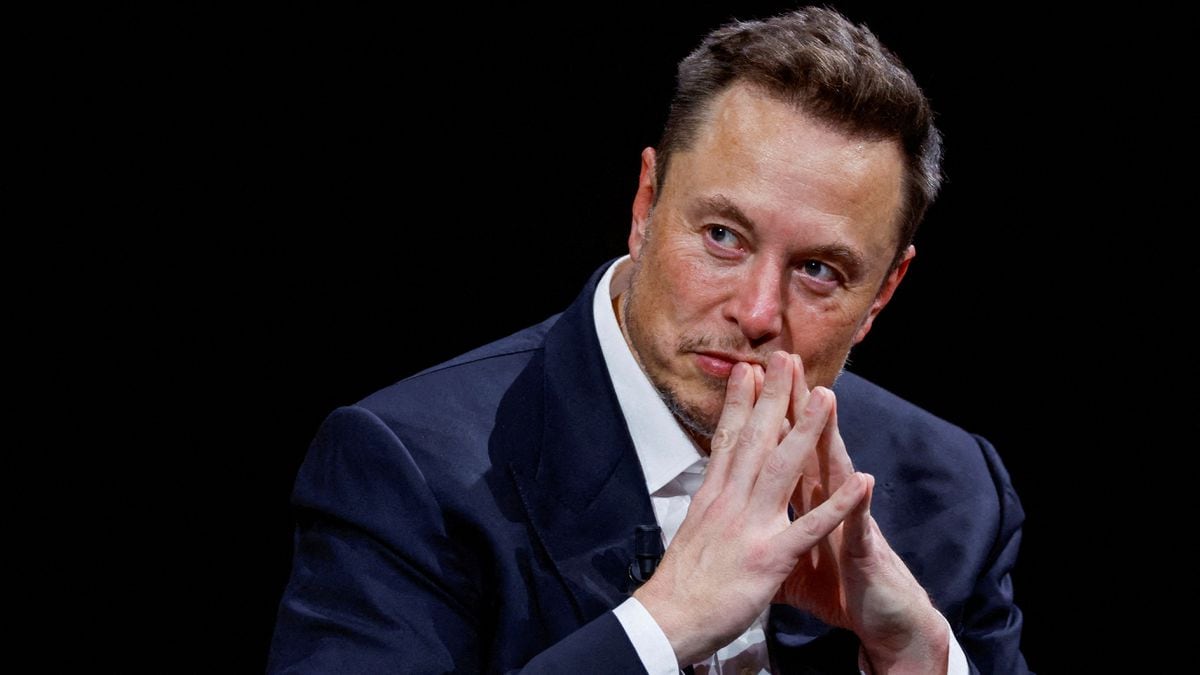Judge Alexandre de Moraes walks behind Lula, the Brazilian president, in an act in Brasilia the day after the Bolsonaro assault on the three powers.UESLEI MARCELINO (REUTERS)
If there is one person on the entire planet whom the Brazilian Bolsonaristas hate more intensely than President Luiz Inácio Lula da Silva—whom they loathe while acknowledging his cunning—it is Alexandre de Moraes, 54, a judge who he has become the superhero of the Brazilian democrats.
The togado is both the terror of the ultra-rightists who stormed the institutional heart and of those who created the breeding ground for the invasion.
Supreme Court magistrate Moraes has agreed to investigate whether the former president, Jair Bolsonaro, encouraged the invasion.
He hoards monumental power while chaining unprecedented decisions in his mission to neutralize Bolsonarism's attacks on the institutional framework and preserve the rule of law.
At Lula's inauguration he was greeted like a rock star.
In the hours following the assault in the Plaza de los Tres Poderes, Judge Moraes took a series of forceful measures.
He ordered the arrest of those caught red-
handed
inside the Presidency, Congress and the building where he himself works, the Supreme Court, and also the Bolsonaristas from the coup camp in front of the Army headquarters in Brasilia.
Almost 1,500 people... one of the largest raids in living memory.
In a country where provisional detention is rare unless one is poor, it has sent almost a thousand suspects to prison on provisional basis who never imagined themselves in such a situation and who do not stop complaining about their treatment.
“Don't let those terrorists who rioted on Sunday and who are now incarcerated believe that the prison is a summer camp.
And that they do not believe that the institutions are going to falter”, he declared to the press at an event after promising that all those involved will be punished: “Those who perpetrated the acts, planned them, financed them and encouraged them by action or omission”.
Another nearly 500 people are free with charges.
The Supreme Court magistrate intends to formally accuse them of terrorism, although the State Attorney General's Office does not see it as clear that the actions of the assailants fit the legal definition.
Former President Bolsonaro, who is still in the US, is accused of encouraging the invasion because of a video that he posted on networks not before, but two days after the attack, and that he deleted within hours.
The same afternoon of the invasion, he adopted the unprecedented decision to remove from office, ex officio and for 90 days, the governor of the Federal District, Ibaneis Rocha, an ally of Bolsonaro.
He accuses him of collusion and omission, like the other political leader of the DF security forces, a former Bolsonaro minister who has been in prison — and in silence — since he turned himself in to the police upon his return from the US.
Among the little he has said, he forgot his cell phone in Florida.
Joel Pinheiro da Fonseca, a columnist for
Folha de S. Paulo,
described the democrats' dilemma on Monday: “There is no contradiction in stating at the same time that: 1) without the sometimes questionable decisions of Alexandre de Moraes, the Brazilian democracy would be at risk.
2) the precedents that open these decisions are themselves risks for democracy”.
The magistrate comes from the world of laws, but he was already at the forefront of politics.
He was brief justice minister for center-right Michel Temer before he was sent to the highest court at just 48 when one of the judges died in an accident.
He had previously been Secretary of Public Safety of São Paulo.
A strong-armed supporter, he was known for his sheriff's manner.
Moraes is undoubtedly the Supreme Court judge with the most political prominence in the last couple of years.
He focuses on highly publicized cases, such as the one that investigates the machine for spreading Bolsonaris hoaxes —the so-called hate cabinet—, or now, those derived from the invasion of institutions.
And also in the last campaign he starred in the news on a daily basis because it corresponded to him to preside over the Superior Electoral Tribunal, in charge of ensuring the cleanliness of the elections in a very close race infested with false news.
In a country with lax and long deadlines, it took less than 24 hours to analyze the appeal of the defeated Bolsonaro against the electoral result.
He rejected it, accused him of bad faith for continuing to insist on fraud without evidence, and fined his party.
Nor did his pulse tremble then, or now, to ruthlessly silence the social media accounts of influential Bolsonaristas with millions of followers whom he accuses of encouraging, with disinformation, attacks on democracy.
The fact that he did so without notice or possibility of appeal has garnered him accusations of censorship from, among others, the American journalist Glenn Greenwald, who has lived in Brazil for many years.
"The activism of the Supreme Court represents a worrisome risk," the newspaper
O Globo
headlined one of its editorials last June.
As usual in the Supreme Court of Brazil, Moraes makes an infinite number of precautionary decisions individually, but for the moment the majority of those in the Supreme Court support them afterwards.
The followers of the previous president consider him an all-powerful dictator and Bolsonaro himself came to insult him with all the letters in a massive rally.
“Go away, Alexandre de Moraes!
Stop being a scoundrel, stop oppressing the Brazilian people and censoring them," he proclaimed on Independence Day in 2021. The far-right, then president, had already launched an offensive against the institutions and threatened to disobey Moraes' rulings.
His accelerated rise to Olympus recalls the career of another former judge, expelled from the race.
Sérgio Moro, 50, once a revered anti-corruption hero and Bolsonaro's minister, fell out of favor for not being impartial in trying Lula, which is why the cases against the current president fell apart like a sugar cube and he was able to return to office. can.
Moro is now discreetly taking refuge in the Senate seat that he won in the last elections.
Subscribe here to the EL PAÍS America newsletter and receive all the latest news in the region.




/cloudfront-eu-central-1.images.arcpublishing.com/prisa/6QTLY5O5HNLTHDIKOJG7O6H5DA.jpg)


/cloudfront-eu-central-1.images.arcpublishing.com/prisa/N6V3GDEDQJGQZM3GUDXJW6YWNU.jpg)

